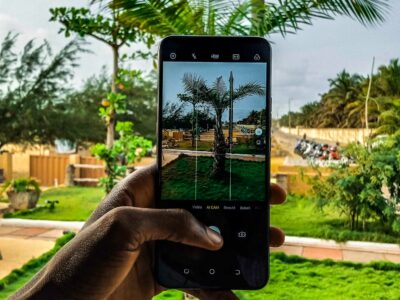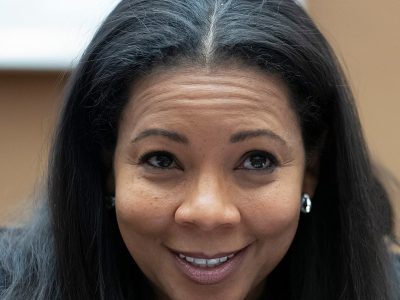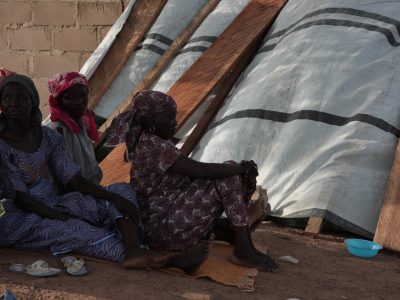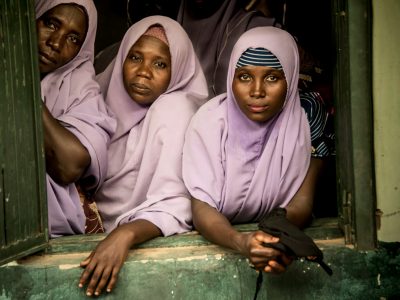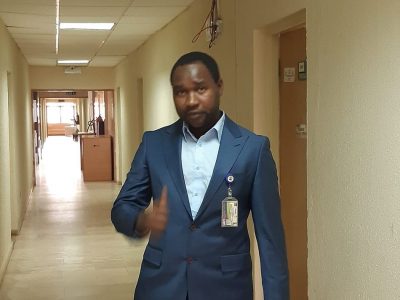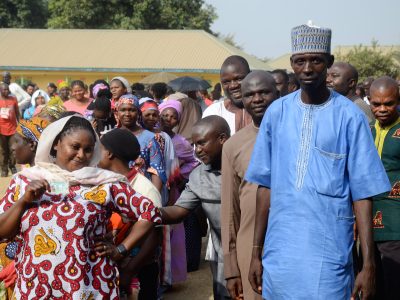Nwachukwu Egbunike – poet and journalist – is an adjunct lecturer at the School of Media and Communication, Pan Atlantic University, Lagos, Nigeria. Egbunike's research agenda straddles social media, youth political participation, politics and ethnicity. He is the author of four books, including “Hashtags: social media, politics and ethnicity in Nigeria” and “Nka” (a collection of poems).
Latest posts by Nwachukwu Egbunike
Disparity in the data collection policies of some pan-African firms in Uganda raises privacy concerns
The Unwanted Witness report revealed that most of the personal data collected online violates privacy rights, with no regards for the safety and dignity of citizens.
Behind the success of the Kenyan Twitter disinformation campaign to discredit the Pandora Papers
Kenya’s disinformation industry successfully manipulated Twitter’s trending algorithm to attack the Pandora Papers and protect President Uhuru Kenyatta, whose family was implicated in the exposé.
#FreeRebecca: Global Voices Sub-Saharan Africa condemns the arbitrary arrest and detention of Cameroon’s tech leader Rebecca Enonchong
Global Voices Sub-Saharan Africa demands the unconditional release of Rebecca Enonchong from detention.
Nigerian government suspends Twitter after controversy over president's deleted tweet threatening violence
Nigeria twitter users from different ethnic groups adopted Igbo names while trending the #IamIgboToo hashtag to express their solidarity with the Igbo people, targets of President Buhari’s offensive tweet.
Nigerian politician arrested for condemning the kidnap of schoolchildren
Salihu Tanko Yakasi’s tweets came after the kidnapping of about 300 school girls at Government Girls Secondary School inJangebe, north-western Nigeria, on February 26, 2021.
Freedom of expression in a downward spiral in Southern Africa, says new study
Outdated laws, exorbitant fees, and stifling of dissent have ramped up violations to the right of free expression in Malawi, Mozambique, Namibia, South Africa, Tanzania, Zambia, and Zimbabwe.
Nigerian protesters arrested for resisting reopening of the Lagos Lekki toll gate
The protest came on the heels of the Lagos Judicial Panel of Inquiry's decision to reopen the toll gate— a move perceived as insensitive to victims of the Lekki shootings.
Seven African governments employ surveillance spyware, says new study
Equatorial Guinea, Botswana, Kenya, Morocco, Nigeria, Zambia, and Zimbabwe have employed surveillance technology from Circles, a firm affiliated with Israel's NSO Group, according to the report by Citizen Lab.
Shutdowns, throttling and stifling dissent online: Africa’s new normal, Part II
Weaponizing digital blackouts or social media clamp down by Algeria, Ethiopia, Guinea, Nigeria, Sudan and Tanzania is an ominous sign of a deeply problematic system of governance.
Shutdowns, throttling and stifling dissent online: Africa’s new normal, Part I
African governments are using school examinations and politically charged moments as an excuse to effect digital blackouts or clamp down on social media.
How Facebook derailed Nigeria’s #EndSARS movement
Online free speech advocates insist that Facebook’s flagging of #EndSARS content was neither a “mistake” nor a “bug,” but rather due to sparse investment in content moderation.
Digital rights in Africa is still far from the internet freedom we desire
Despite the prevailing circumstance, but hopeful about the future, eight Global Voices contributors from six African countries discuss Internet freedom and how digital rights can be promoted in the continent.
Women in Nigeria face a caustic landmine of political advocacy online
“I’ve grown a really thick skin,” said Fakhriyyah Hashim, co-founder of the #ArewaMeToo movement in northern Nigeria.
Nigerian atheist faces death threats for blasphemy against Islam
"Nigeria is a secular state and freedom of speech is one of the fundamental characteristics of a modern democratic state. Criticizing a religion is not a criminal offence."
Nigerian government orders release of Omoyele Sowore, journalist and human rights activist
Omoyele Sowore was arrested in August on charges of treason, money laundry and harassing President Muhammadu Buhari of Nigeria. He has been in jail despite court pronouncements ordering his release.
Nigeria's social media bill will obliterate online freedom of expression
The proposed social media bill will annihilate online freedom of expression, criminalize criticism of the government and legalize internet shutdowns in Nigeria.
Twitter was a minefield of false information during the 2019 Nigerian elections
Twitter became a battle ground of ethnocentric disinformation and political propaganda before, during and in the immediate aftermath of the 2019 elections in Nigeria.
Social media propelled ethnocentric disinformation and propaganda during the Nigerian elections
The 2019 Nigerian elections witnessed unprecedented dissemination of ethnic hate speech at the service of disinformation and propaganda online, particularly on Twitter.
Nigerian journalist under threat of arrest for exposé of police and prison corruption
The intimidation of journalist 'Fisayo Soyombo exemplifies the precarious state of press freedom and free speech in Nigeria.
Nigerian journalist Omoyele Sowore remains in jail on trumped-up charges of treason and insulting the president
Rights groups see Omoyele Sowore's continued detention and the charges filed against him as merely a criminalisation of political dissent in Nigeria.

